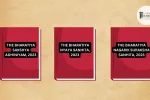No Evidence of Forcible Intercourse, Relationship Consensual – High Court Sets Aside Conviction Under Section 376 IPC While Upholding Section 417 IPC Conviction

In a notable judgment passed today by the Hon’ble Justice Shampa Dutt (Paul) of the High Court at Calcutta, the conviction under Section 376 (rape) of the IPC was set aside due to a lack of evidence supporting forcible intercourse, thereby determining the relationship as consensual. However, the conviction under Section 417 (cheating) was upheld due to deceit concerning the promise of marriage.
Legal Background and Prosecution’s Claims:
The case arose from allegations made by Sajeda Khatun against Sk. Azad Ali, involving promises of marriage followed by refusal after she became pregnant. The initial trial at the Sessions Court resulted in a conviction under Sections 376 and 417 of the IPC, sentencing Ali to seven years of rigorous imprisonment for rape and one year for cheating.
Factual Matrix and Issues Raised:
The prosecution’s narrative was that Ali, exploiting the trust developed over time, engaged in a sexual relationship under a false promise of marriage. It was claimed that when confronted about the pregnancy, Ali assaulted Khatun to induce a miscarriage and refused to marry her, despite community interventions.
Detailed Court Assessment:
Consensual Relationship: The High Court found that the sexual relationship was consensual, citing evidence and prior judgments, notably Shambhu Kharwar vs State of Uttar Pradesh and Kuldeep K. Mahato vs State of Bihar, which discussed the implications of consent and the absence of physical restraint or resistance.
Previous Marital Status: The court noted discrepancies in Khatun’s claims about her previous marriage, which were contradicted by other witnesses, suggesting that she was not forthcoming about her marital status.
Legal Analysis on Consent: Justice Dutt noted, “There are no materials or evidence to show that the victim was subjected to forcible intercourse nor any resistance offered by the victim,” thus setting aside the conviction under Section 376. The court emphasized the role of mutual consent and the adult complainant’s understanding and acceptance of the nature of her relationship with Ali.
Deceit and Cheating: However, the court upheld the conviction under Section 417, recognizing the established deceit regarding the marriage promise. Justice Dutt observed, “While the physical relationship was consensual, the appellant’s failure to fulfill his promise of marriage constituted clear deceit.”
Decision and Sentence Modification:
The court modified the sentence for the cheating offense to a fine of Rs. 10,000, to be paid as compensation to Khatun, replacing the earlier imprisonment term.
Date of Decision: May 13, 2024
Sk. Azad Ali vs. The State of West Bengal






